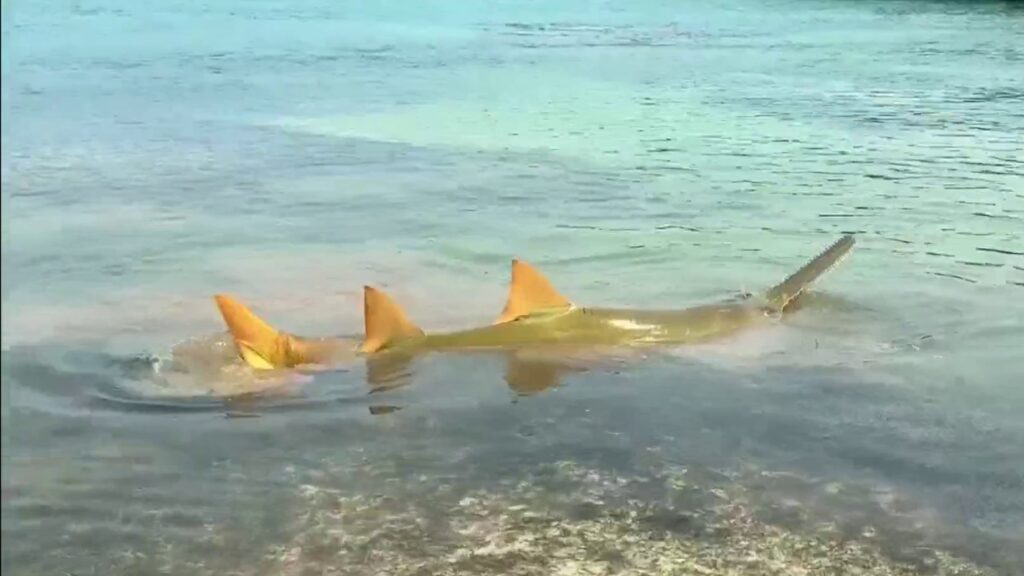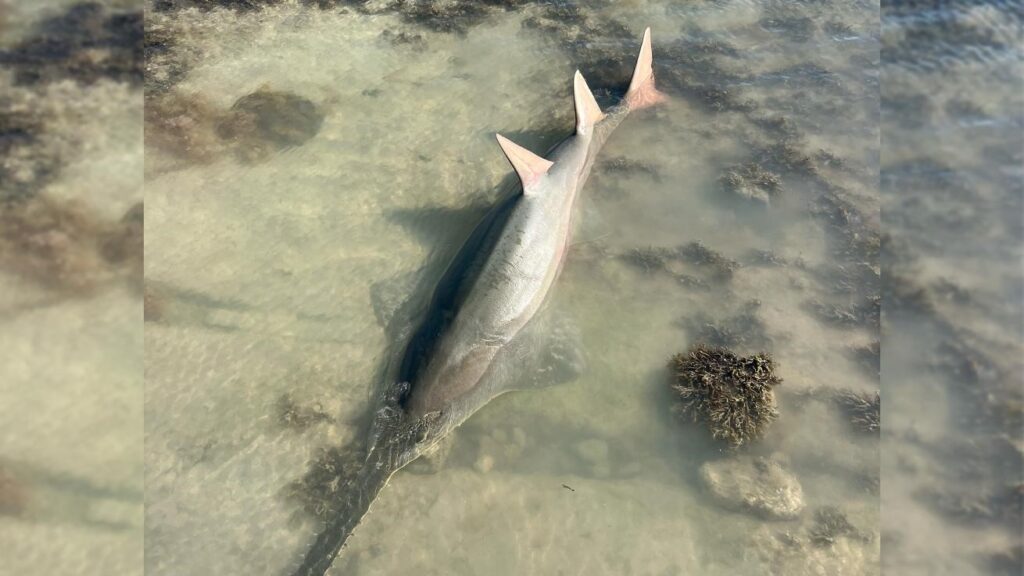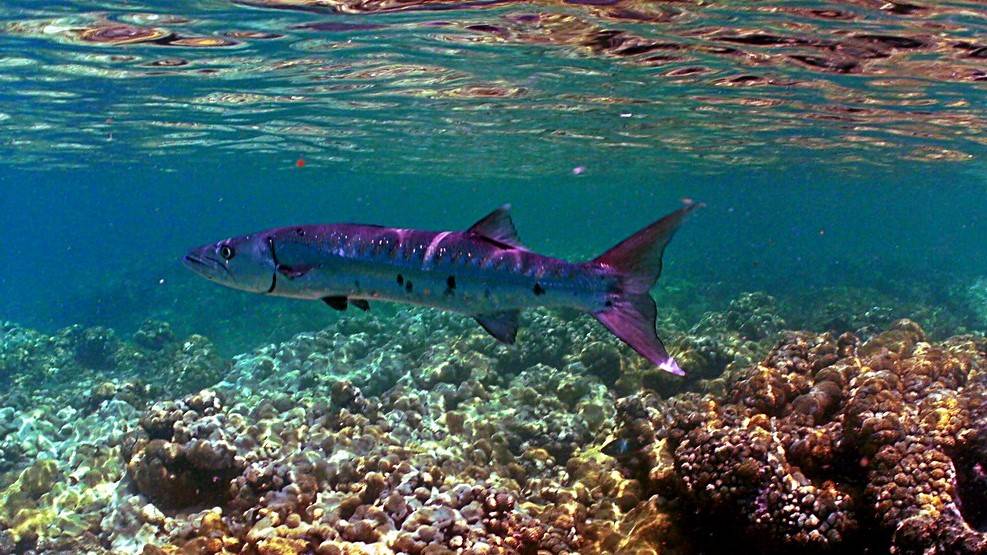Truth about Florida Keys Fish Spinning and Dying: The Florida Keys, renowned for their vibrant marine life and stunning coral reefs, are currently facing a dire issue: fish spinning and dying in large numbers. This phenomenon has raised alarms among environmentalists, marine biologists, and local communities alike. Understanding the causes and implications of this issue is crucial for preserving the delicate ecosystem of the Keys.
Geographical Information
Location of the Florida Keys
The Florida Keys are an archipelago located off the southern coast of Florida, stretching about 120 miles from the southeastern tip of the Florida peninsula. This tropical paradise is known for its crystal-clear waters, diverse marine species, and vibrant coral reefs.
Climate Conditions
The climate of the Florida Keys is classified as tropical, characterized by warm temperatures year-round. Summers are hot and humid, with frequent thunderstorms, while winters are mild and dry. The region’s climate plays a significant role in the health of its marine ecosystem.
Oceanographic Features
The Florida Keys are surrounded by the Gulf of Mexico to the west, the Atlantic Ocean to the east, and the Straits of Florida to the south. These waters are crucial habitats for various marine species, making the Keys a biodiversity hotspot.
Environmental Factors behind Florida Keys Fish Spinning and Dying
Water Temperature Changes
Water temperature fluctuations are a critical factor affecting fish health in the Florida Keys. Sudden increases in water temperature can lead to thermal stress in fish, causing them to exhibit unusual behaviors such as spinning before ultimately dying.
Pollution Levels
Pollution from agricultural runoff, industrial waste, and urban development has significantly impacted the water quality in the Florida Keys. Contaminants such as heavy metals and pesticides can be toxic to fish, leading to mass die-offs.
Coral Bleaching
Coral bleaching, caused by rising sea temperatures, has devastated the coral reefs in the Keys. The loss of coral reefs, which serve as essential habitats for many fish species, has disrupted the marine ecosystem and contributed to fish mortality.
Red Tide Occurrences
Red tide, a harmful algal bloom caused by the dinoflagellate Karenia brevis, releases toxins that are lethal to marine life. These toxins can cause fish to exhibit erratic swimming behaviors, including spinning, before succumbing to the effects.

Biological Factors
Fish Species Affected
Various fish species in the Florida Keys are affected by the spinning and dying phenomenon, including snappers, groupers, and tarpon. Each species responds differently to environmental stressors, but all are vulnerable to the changes occurring in their habitat.
Symptoms in Fish
Common symptoms observed in affected fish include disorientation, erratic swimming, lesions, and difficulty breathing. These symptoms indicate severe stress and often precede death.
Natural Predators
The decline in fish populations also impacts the food chain. Natural predators such as sharks and barracudas are affected by the reduced availability of prey, which can lead to broader ecological consequences.
Disease Outbreaks
Disease outbreaks, exacerbated by poor water quality and stress, are another factor contributing to fish mortality. Pathogens such as bacteria, viruses, and parasites can spread rapidly in compromised ecosystems, leading to widespread fish deaths.
Human Impact
Overfishing
Overfishing in the Florida Keys has significantly reduced fish populations, disrupting the balance of the marine ecosystem. Depleting key species can lead to cascading effects throughout the food web.
Coastal Development
Coastal development and habitat destruction have further strained the marine environment. The construction of marinas, resorts, and residential areas has led to the loss of critical habitats for fish and other marine life.
Boat Traffic
Heavy boat traffic in the Florida Keys increases the risk of pollution and physical damage to marine habitats. Boats can leak fuel and oil, and their anchors can destroy sensitive coral reefs and seagrass beds.
Pollution from Tourism
Tourism, while economically vital for the Florida Keys, also contributes to pollution. Improper waste disposal and the use of sunscreens containing harmful chemicals can degrade water quality and harm marine life.

Diagnosis and Monitoring
Methods of Diagnosing Fish Health
Diagnosing fish health involves examining physical symptoms, conducting water quality tests, and performing necropsies on deceased fish. These methods help identify the underlying causes of fish mortality.
Monitoring Water Quality
Continuous monitoring of water quality is essential for detecting changes that could impact marine life. Parameters such as temperature, pH, dissolved oxygen, and contaminant levels are regularly measured.
Research Studies and Findings
Research studies conducted by marine biologists and environmental scientists provide valuable insights into the factors contributing to fish die-offs. These studies help develop effective strategies for mitigating the problem.
Role of Local Authorities
Local authorities, including environmental agencies and conservation organizations, play a crucial role in monitoring and addressing fish mortality. Their efforts include enforcing regulations, conducting research, and engaging with the community.
Treatment and Recovery Efforts
Coral Restoration Projects
Coral restoration projects aim to rehabilitate damaged coral reefs, which are vital habitats for many fish species. Techniques such as coral gardening and artificial reef construction are employed to promote reef recovery.
Pollution Control Measures
Implementing pollution control measures is essential for improving water quality in the Florida Keys. Efforts include reducing agricultural runoff, regulating industrial discharges, and promoting eco-friendly practices among residents and tourists.
Fishing Regulations
Enforcing fishing regulations helps protect fish populations and ensures sustainable fishing practices. Measures such as catch limits, seasonal closures, and protected areas are implemented to preserve marine life.
Community Involvement
Community involvement is crucial for the success of conservation efforts. Local residents, businesses, and tourists are encouraged to participate in initiatives such as beach cleanups, citizen science projects, and educational programs.
Preventive Measures
Sustainable Fishing Practices
Adopting sustainable fishing practices is vital for preserving fish populations. Techniques such as catch and release, using non-destructive fishing gear, and adhering to size and bag limits help minimize the impact on marine life.
Eco-Friendly Tourism
Promoting eco-friendly tourism practices can reduce the environmental impact of visitors to the Florida Keys. Encouraging the use of reef-safe sunscreens, proper waste disposal, and responsible wildlife interactions are key strategies.
Public Awareness Campaigns
Public awareness campaigns aim to educate the community about the importance of protecting the marine environment. These campaigns highlight the consequences of pollution, overfishing, and habitat destruction, and promote sustainable behaviors.
Government Policies
Government policies play a critical role in protecting the Florida Keys’ marine ecosystem. Regulations addressing water quality, coastal development, and fisheries management are essential for ensuring long-term sustainability.
Case Studies
Notable Incidents of Fish Die-Offs
Several notable incidents of fish die-offs in the Florida Keys have drawn attention to the issue. These events highlight the urgent need for effective conservation measures and provide valuable lessons for future efforts.
Successful Recovery Efforts
Examples of successful recovery efforts demonstrate the positive impact of conservation initiatives. Projects such as coral restoration and pollution control have led to improved fish health and ecosystem resilience.
Long-Term Impact Assessments
Long-term impact assessments provide insights into the effectiveness of conservation measures. These assessments help identify areas for improvement and guide future efforts to protect the marine environment.
Expert Insights
Marine Biologists’ Opinions
Marine biologists provide expert insights into the causes and consequences of fish mortality in the Florida Keys. Their research and observations are crucial for developing effective conservation strategies.
Environmental Scientists’ Perspectives
Environmental scientists contribute valuable perspectives on the broader environmental factors affecting fish health. Their work highlights the interconnectedness of marine ecosystems and the importance of holistic approaches to conservation.
Local Fishermen’s Experiences
Local fishermen offer firsthand accounts of the changes they have observed in fish populations and behaviors. Their experiences provide practical insights into the impact of environmental stressors on marine life.
Government Officials’ Statements
Statements from government officials underscore the importance of regulatory measures and public engagement in addressing the issue. Their support is vital for implementing and enforcing conservation policies.
Future Prospects
Predictions for the Future
Predictions for the future of the Florida Keys’ marine ecosystem are mixed. While challenges remain, ongoing research and conservation efforts offer hope for recovery and resilience.
Potential Solutions
Potential solutions to the issue of fish spinning and dying include enhanced monitoring, stricter regulations, and increased public engagement. Collaborative efforts at local, national, and international levels are essential.
Ongoing Research
Ongoing research is critical for understanding the complex factors contributing to fish mortality. Continued investment in scientific studies and technological innovations will help develop more effective conservation strategies.
Importance of Global Cooperation
Global cooperation is crucial for addressing the environmental challenges facing the Florida Keys. Climate change, pollution, and overfishing are global issues that require coordinated efforts to resolve.
Conclusion
The phenomenon of fish spinning and dying in the Florida Keys is a complex issue with significant environmental, economic, and social implications. Addressing this problem requires a multifaceted approach involving research, conservation efforts, and public engagement. By working together, we can help preserve the unique marine ecosystem of the Florida Keys for future generations.
FAQs
What causes fish to spin and die in the Florida Keys?
Fish spinning and dying in the Florida Keys can be caused by various factors, including water temperature changes, pollution, coral bleaching, and harmful algal blooms such as red tide.
How can we help prevent fish die-offs?
Preventing fish die-offs involves adopting sustainable fishing practices, reducing pollution, supporting coral restoration projects, and promoting public awareness about the importance of marine conservation.
What are the most affected fish species?
Species such as snappers, groupers, and tarpon are among the most affected by the environmental changes in the Florida Keys.
What is the role of red tide in fish deaths?
Red tide releases toxins that are lethal to fish, causing symptoms such as erratic swimming and respiratory distress, which can lead to death.
How does climate change impact fish health?
Climate change leads to rising sea temperatures and more frequent extreme weather events, which can cause thermal stress and habitat destruction, negatively impacting fish health.
If you want to learn about fishing spots near you click here

